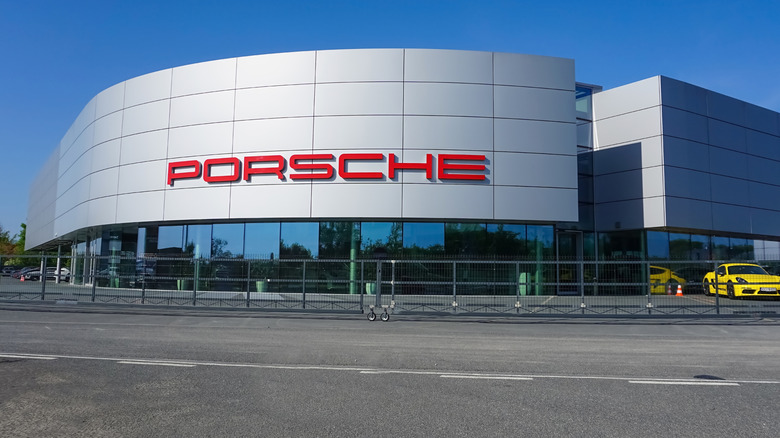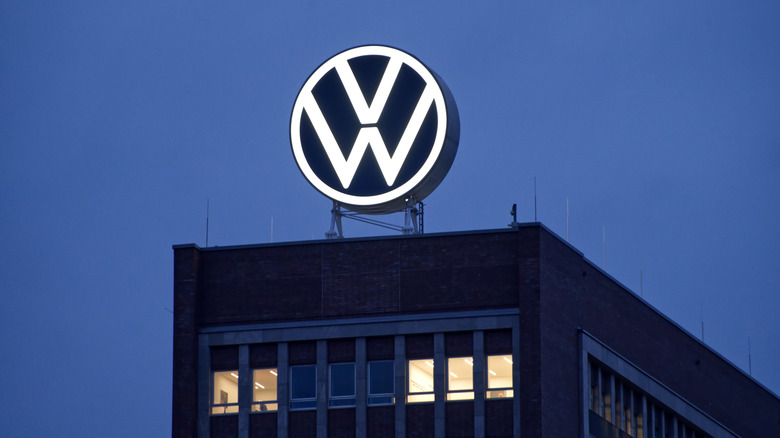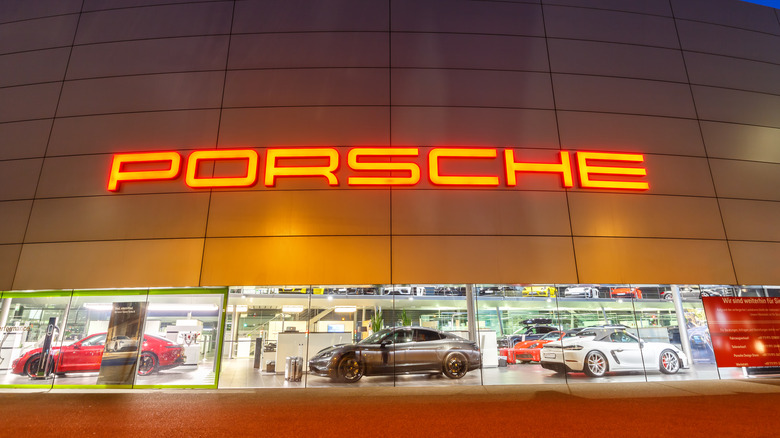Who Owns Who? The Complicated Relationship Between Volkswagen And Porsche
It is very rare nowadays to see a car manufacturer operate solely on its own. When companies like Dodge or Chevrolet were founded over 100 years ago, those companies were their own entities. Now, they are almost always part of some bigger conglomerate that owns several different brands, like Stellantis owning brands such as Dodge, Jeep, and Chrysler.
One of the stranger automotive corporate structures is, without question, the relationship between Volkswagen and Porsche. You see, you can say Volkswagen owns Porsche and Porsche owns Volkswagen, and you would technically be correct on both counts.
The two companies have been intertwined ever since their inceptions. Ferdinand Porsche did not just found his own company, but he was also instrumental in the design of the Volkswagen Beetle. Once World War II was over, and he briefly was imprisoned for war crimes that he ultimately wasn't convicted of, Ferdinand's son Ferry designed the timeless work of art that is the Porsche 356, which would put the Porsche brand into the production car market.
This car used so many of the same components and design elements of the Beetle, that the two were essentially sister vehicles, and Porsche would outsource much of the production of these cars to Volkswagen. Despite the fact that these two companies have connected origin stories and quite a bit of creative overlap, that is not why the two brands are financially involved today. That came about decades later, long after Ferdinand Porsche was dead.
The Volkswagen Law
If Porsche's political party affiliation didn't give it away, Volkswagen was founded by the Nazi Party, making it a government entity. After a brief time being owned by the British after the war, it returned to German government rule in the late 1940s, particularly by the state of Lower Saxony. This ownership would remain in place until 1960 with the passing of what is known as the Volkswagen Law. Volkswagen was put up for sale, and anyone could buy shares in the company.
However, this came with three caveats. The first was that the West German government would still own 20% of Volkswagen, along with Lower Saxony itself also owning 20%. The second was that no other entity could own more than 20%. Lastly, the law that stated that any major resolutions required at least 80% of the shareholders to approve it. The government keeping those shares gave it quite a bit of control to veto anything it didn't like, making it a minority powerhouse.
This law remained in place until the mid 2000s, when the European Court of Justice deemed it to be illegal, and Germany spent several years trying to get the case dismissed by restructuring the law. Eventually, the Volkswagen Law ended in 2013, dispensing with that powerful 20% veto power for the government.
It was in this time period that Porsche began furiously purchasing shares of Volkswagen. By 2009, Porsche owned over 50% of Volkswagen, but it didn't get to have full control of the company until that law was struck down. So, this explains how Porsche owns Volkswagen, but not how Volkswagen owns Porsche.
A tale of debt and corporate structuring
The thing about the Porsche name is that it isn't just used as the catchall name for the company. There are actually two different entities that use that name. On the one hand, you have Porsche SE, which is the overall holding company. On the other, you have Porsche AG, which is the division that actually produces the cars. Porsche SE was the company that was ferociously purchasing all of those shares of Volkswagen.
The problem with this purchasing is that it meant that Porsche SE went into serious amounts of debt. In order to deal with that debt, it needed to start selling off parts of its business in order to cover it. That included Porsche AG, and it just so happens that the company that came in and started buying up shares in Porsche AG was, in fact, Volkswagen. In 2009, Volkswagen purchased a whopping 49.9% stake in the company, and that was followed up in 2012 when it bought the remaining 50.1% for €4.46 billion.
Volkswagen was now in full control of Porsche AG, and the following year, Porsche SE was able to gain control of Volkswagen with the Volkswagen Law being altered. So while the phrases Porsche owns Volkswagen and Volkswagen owns Porsche seem contradictory, they are indeed both correct statements thanks to circular corporate maneuvering. Now, these two automakers, that have been creatively intertwined from the beginning, are now uniquely linked financially as well.


